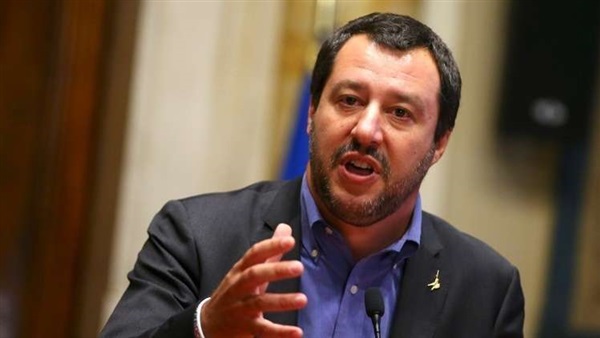These elections could define Europe. It must urgently rediscover its founding spirit

Sometimes, when it comes to Europe, things are
clearer from afar. Take Viktor Orbán’s encounter with Donald Trump last week: a
love-fest perfectly timed to signal that this US president is out to disembowel
the European Union, if not break it entirely. Ahead of the European elections, here
was Hungary’s self-proclaimed “illiberal” prime minister – a man teaming up
with Italy’s far-right strongman Matteo Salvini – receiving his long-awaited
anointment from a white-nationalist US president who has called the EU a “foe”.
Meanwhile, in Syria, barrel bombs and Russian
military ordnance continued to rain down on Idlib’s hospitals and schools, as
the noose tightened on 3 million civilians trapped in the last rebel-held area
that the president, Bashar al-Assad, wants to reconquer. Historians will
perhaps one day tell us whether Vladimir Putin timed that particular offensive
to coincide with other items on his EU-destroying agenda, already well on
display with disinformation campaigns aimed at helping extremist political
forces across the continent.
Anyone who cares to join a few dots will note the
wider picture: the Hungarian would-be autocrat, who rushed to capitalise on the
2015 refugee crisis to promote delirious “population replacement” theories and
other anti-Brussels paranoia, gets the red carpet treatment in the White House,
while orders given by the Kremlin lead to yet more war crimes in Syria,
producing yet more refugees. Remember how the exodus of refugees from Syria’s
civil war upended Europe’s politics in 2015-16? The far-right surge in Europe
we’ve witnessed since is not solely the product of Middle Eastern instability,
but it is intimately connected to it.
Now, as the European parliament elections have
gathered pace, hard-right politicians in Europe are banding together, most of
them legitimising the bombing of Syrian hospitals as part of the “fight against
terrorism”. The silence of the hard left has been deafening, if not surprising
– its leniency towards tyrants that are seen as “standing up” to the west is
all too familiar.
Recently I attended a conference in Oxford titled
What Stories Does Europe Tell?. The challenge for participants was to find a
single narrative for Europe, or figure out if one was even necessary. Politics
these days is full of clashing narratives: “nationalists versus progressives”,
defenders of “Christianity” versus “the 1968 elite” (to quote Orbán), radicals
versus social democrats – and, oh yes, “the people versus the elite”.
But the European project is also a personal
experience. Surveys show there is currently a record high level of support for
EU membership across the continent. To me, a French European who came of age in
the 1990s “end of history” decade, the EU is not just about the single market
or the freedom to work or live in another member state, it is about nations
coming together to act and uphold fundamental individual rights – the legacy of
the Enlightenment – which are now under attack.
Watching Europe’s impotence in the face of what is
unfolding in Syria, and the indifference of European public opinion, has made
me think yet again that we’re in danger of losing our way. Fake news has done a
lot to foster confusion, but Syria’s bloodbath is not stopping and yet we’re
turning our gaze away; we’re bored or perplexed. Syria offers up a mirror to
our moral collapse. We’ve gone from “Never again” to “Oh, that again”.
Instead, from Brexit to Emmanuel Macron’s travails
in France, we continue to navel-gaze. Public discourse bounces about the echo
chambers of our national debates. Never in living memory have we shared so many
common challenges, and never has the outside world tested us so forcefully; but
for all the talk of a shared European public space, we have become more, not
less, parochial. Again, the view from the outside is telling. American
historian Timothy Snyder warned in Oxford that if Europe weaves a false story
about itself, it won’t be able to face up to what’s lurking beyond its realm.
“Empire is waiting,” he said – be it Putin’s Russia, Xi Jinping’s China,
Trump’s “America First”, or the digital behemoths of Silicon Valley.
Is there still time, before we shrink further into
our silos of domestic grievance, to remind ourselves of the cards we do hold?
Europe’s democratic and welfare state model may be flawed, but to this day it
delivers the lowest levels of inequality in the world (only Canada does as
well). The EU is no military superpower but it is the only entity in the world
“able to do something about digital sovereignty” (as Snyder puts it). The EU
The EU can regulate while preserving essential freedoms. It has the tools and a
scale that others lack. On climate breakdown, member states aren’t flawless,
but the EU as a bloc is the only vehicle through which we stand a chance of
weighing in on a global, vital issue.
These European elections, the first since the
refugee crisis, since Brexit and since Trump, will in many ways define what we
can or can’t be – the story we want to tell ourselves and the rest of the
world. The first European parliament elections were held 40 years ago. Simone
Veil, a Holocaust survivor who became the assembly’s first president, said at
the time: “By setting itself large ambitions, Europe will be able to make its
voice heard and defend strong values: peace, the defence of human rights, more
solidarity between rich and poor. Europe is the grand design of the 21st
century.” Surely, it is time to rekindle that spirit.





